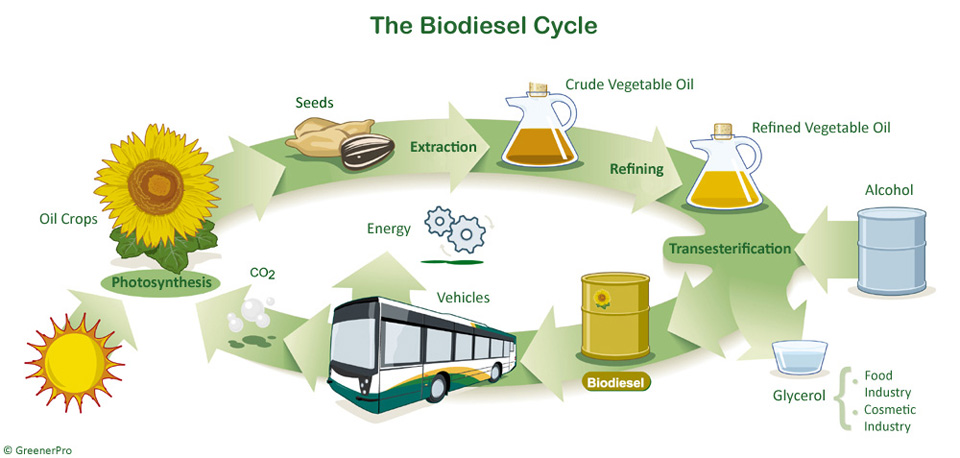As the world transitions towards sustainable energy sources, biodiesel has emerged as a promising alternative to conventional fossil fuels. In this article, we will explore what it is, its benefits, production process, and its impact on the environment.
What is Biodiesel?
Benefits of Biodiesel
- Renewable Energy Source: Unlike traditional diesel, which is a finite resource, it can be produced indefinitely from organic sources.
- Lower Carbon Emissions: it produces significantly fewer carbon emissions compared to fossil fuels, making it a more environmentally friendly alternative.
- Domestic Production: It can be produced locally, reducing dependence on foreign oil and improving national security.
- Engine Durability: It has excellent lubricating properties, reducing engine wear and extending engine life.
Production Process
Biodiesel is produced through a process called transesterification, where vegetable oil or animal fat is combined with an alcohol, such as methanol, in the presence of a catalyst, usually sodium hydroxide. The result is biodiesel and glycerin, which is separated and sold as a byproduct. The process can be conducted on a small or large scale, depending on the needs of the producer. Small-scale producers can produce this renewable fuel in batches, while large-scale producers can use continuous flow reactors to produce in larger quantities.
Impact on the Environment
Biodiesel has a significantly lower environmental impact compared to fossil fuels. It produces 60-90% fewer greenhouse gas emissions and reduces the release of harmful pollutants into the atmosphere. It also reduces dependence on foreign oil, which can result in geopolitical instability and environmental degradation from oil spills.
Conclusion
Biodiesel is a promising alternative to traditional diesel, offering numerous benefits, including renewable energy, lower carbon emissions, and engine durability. The production process is straightforward and can be conducted on both small and large scales, depending on the needs of the producer. As the world continues to move towards sustainable energy sources, it will undoubtedly play a critical role in reducing carbon emissions and improving environmental sustainability.
Frequently asked questions
What is biodiesel, and what is it made of?
Biodiesel is a renewable fuel made from organic sources, primarily vegetable oils, animal fats, and recycled cooking oils. It can be used in any diesel engine without the need for modification, making it an excellent substitute for traditional diesel.
What are the benefits of using biodiesel over traditional diesel?
Biodiesel has several benefits over traditional diesel, including being a renewable energy source, producing significantly fewer carbon emissions, reducing dependence on foreign oil, and extending engine life due to its excellent lubricating properties.
What is the production process of biodiesel, and how is it environmentally friendly?
Biodiesel is produced through a process called transesterification, which combines vegetable oil or animal fat with an alcohol, such as methanol, in the presence of a catalyst, usually sodium hydroxide. This process results in biodiesel and glycerin, which is separated and sold as a byproduct. Biodiesel has a significantly lower environmental impact than fossil fuels, producing 60-90% fewer greenhouse gas emissions and reducing the release of harmful pollutants into the atmosphere.









